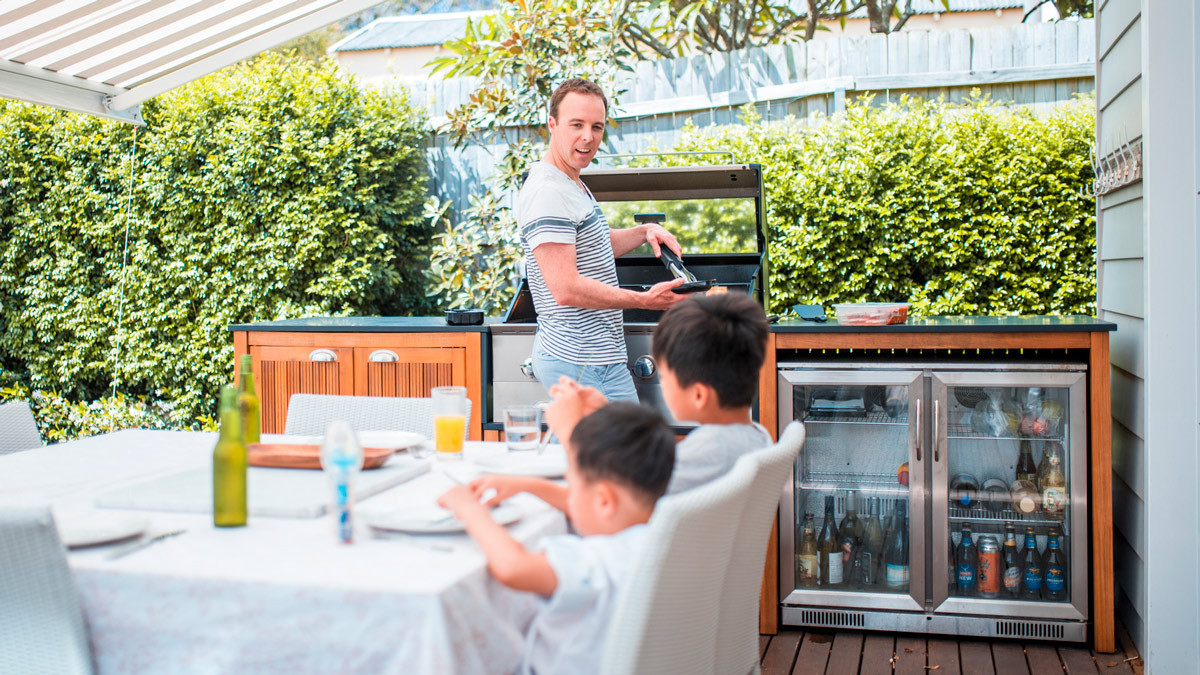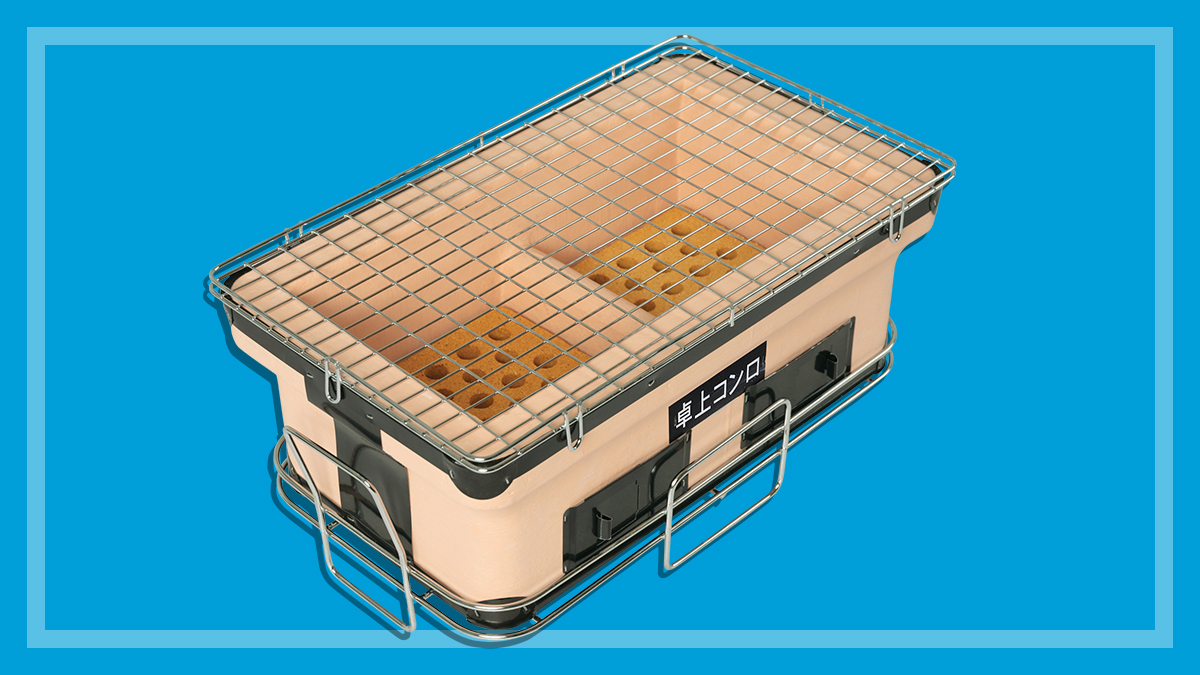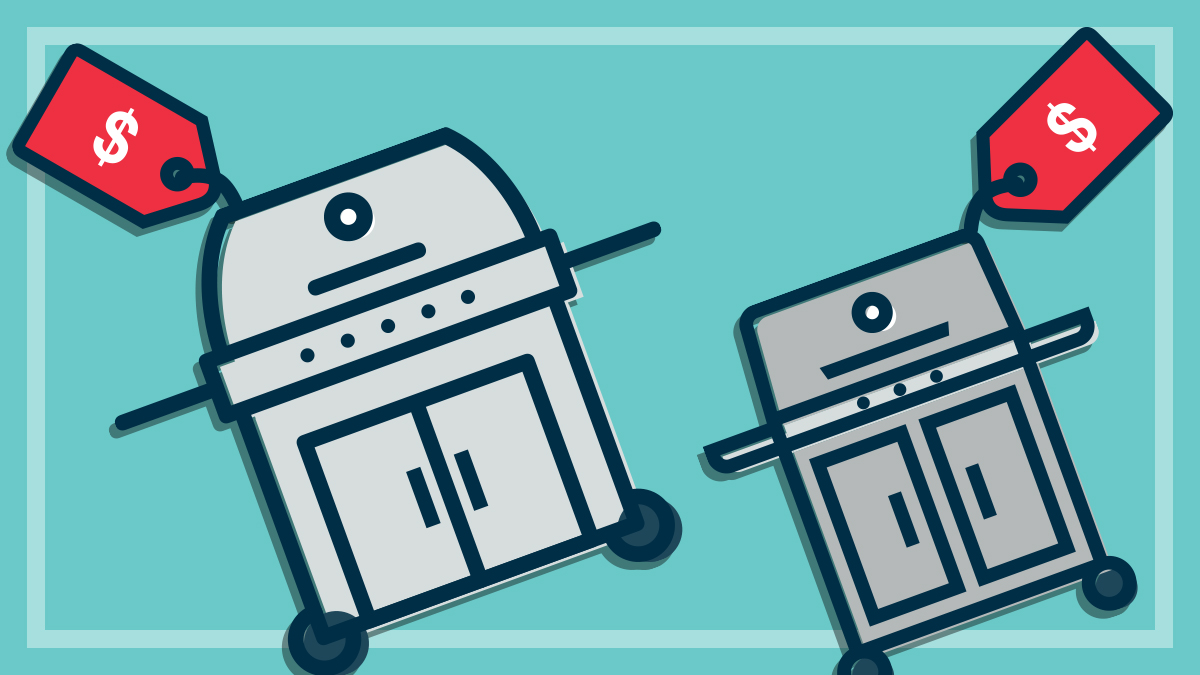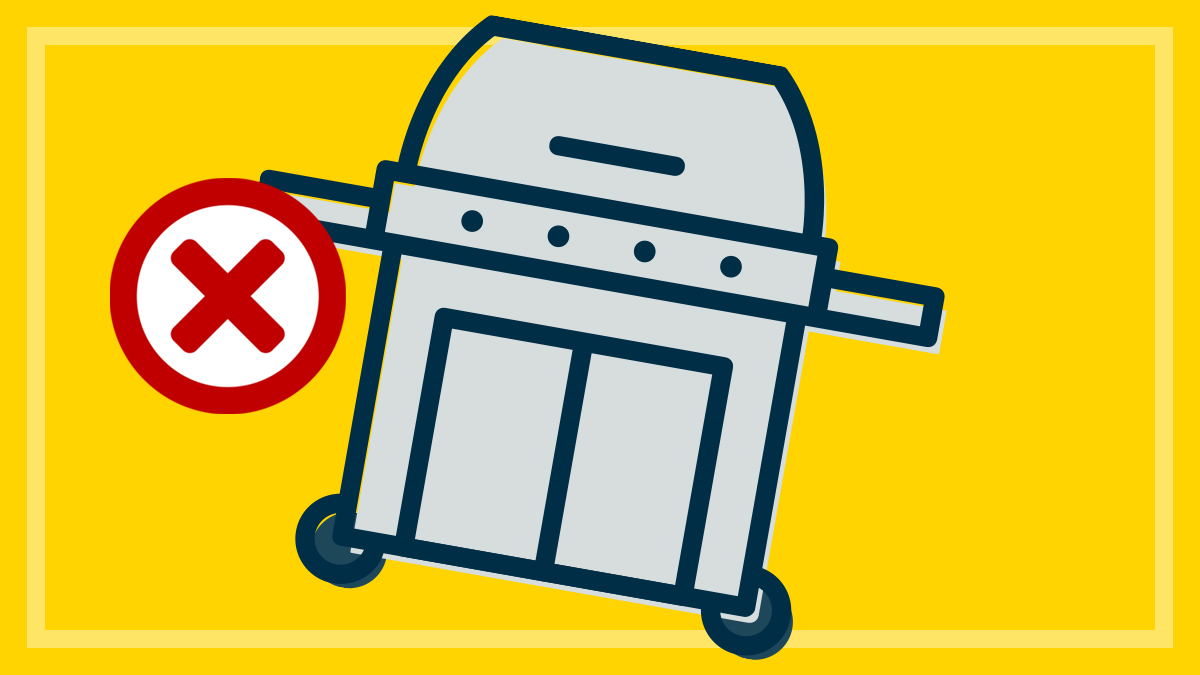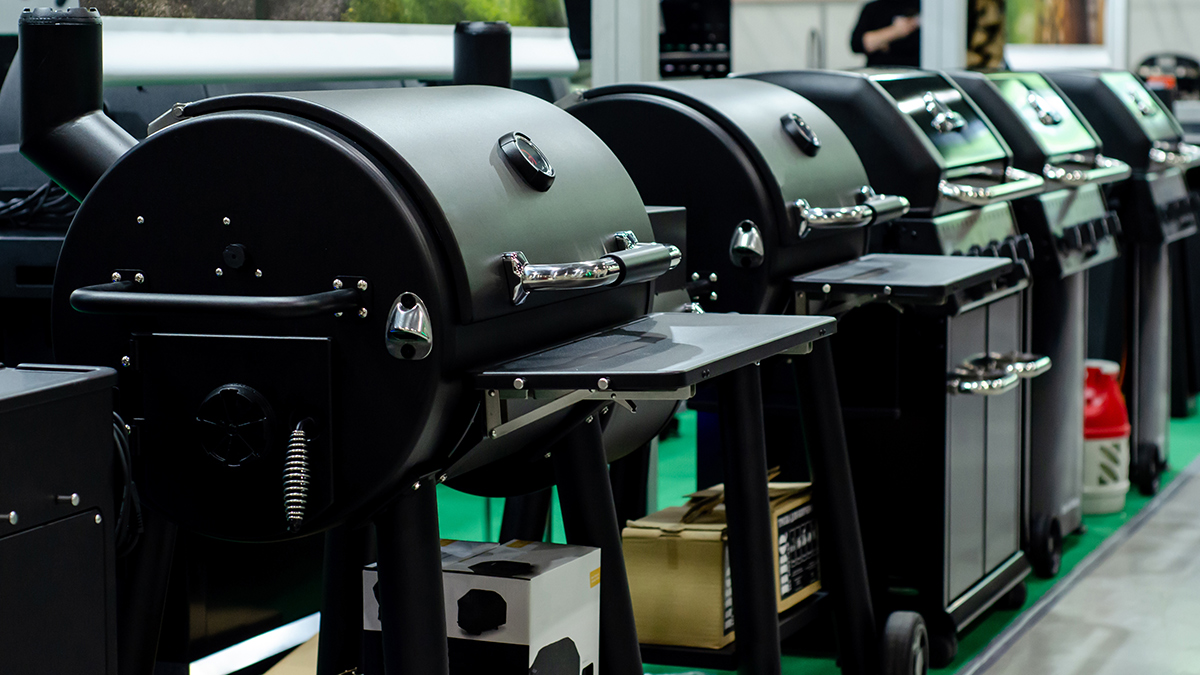Get our independent lab tests, expert reviews and honest advice.
Nine tips for a sparkling clean barbecue
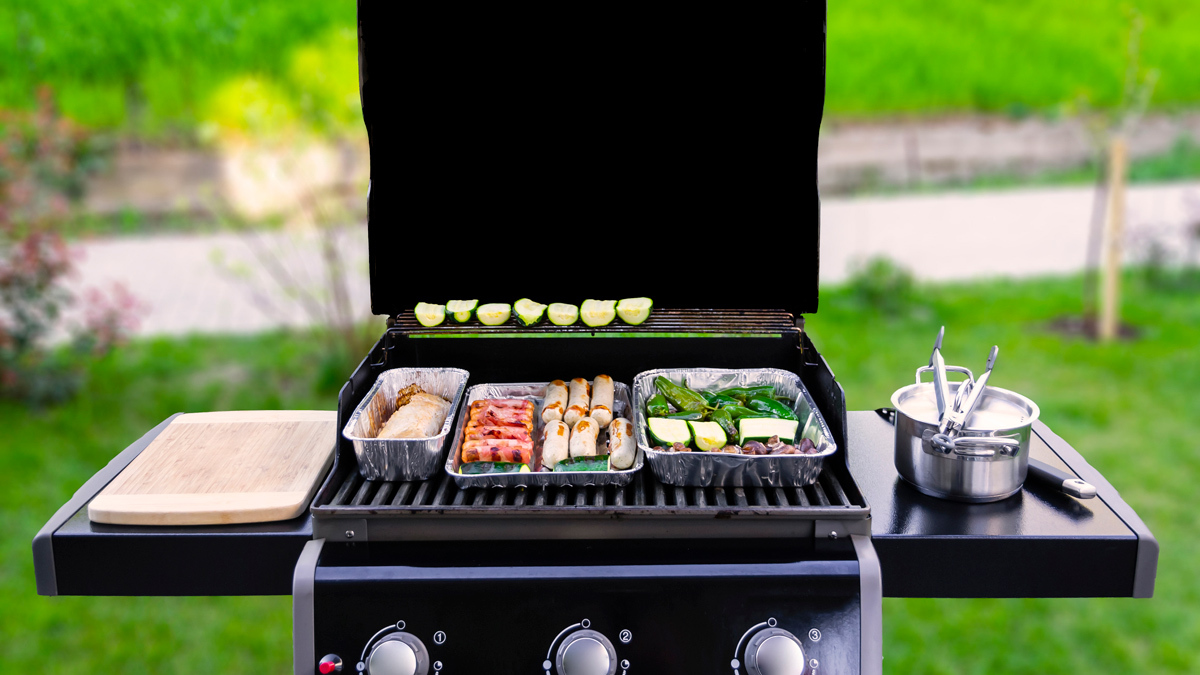
As curls of smoke rise from the barbecue, ferrying aromas of deliciously grilled meats to your hungry guests, you may feel inclined to congratulate yourself on a well-executed cook-up. But wait a second, don’t close that lid and walk away just yet for the job is only half done.
As tempting as it is to join the party, as grillmaster, your role also requires the cleaning of the barbecue. Yes, it’s the least fun part of hosting and grilling, but your future self will thank you for your diligence, so put the work in and get busy degreasing. Take heart, though, because we have some cleaning tips to see you rejoining the party in no time at all.
1. Set up good habits from the get-go
If your barbecue is brand-new, before you even think about throwing a prawn on there, you’ll need to give it a primary clean and season it. Simply remove the hotplates and wash them in warm, soapy water, then brush the grill and hotplates with some neutral cooking oil and heat the barbecue on high for 10 minutes or so. Your barbecue will likely come with instructions for preparing that model for use, but the above method is fine for most barbecues.
Make life easier for yourself from the beginning by choosing a model that’s easy to keep clean
If you’re in the market for a new barbecue, make life easier for yourself from the beginning by choosing a model that’s easy to keep clean. Our experts assess this on each new barbecue we test and rate them accordingly in our ‘ease of use’ score, so don’t forget to check our reviews before you buy.
2. Do seasonal deep cleans
If your barbecue isn’t new, but it’s been gathering dust and harbouring unpleasant insects all winter, you’ll want to give it a thorough clean so it’s all ready to go for grill season. This is the part where you cross your fingers and hope you did yourself a solid last time you used it by giving it a proper pre-hibernation clean.
For this deep-clean, you can essentially retrace the steps of cleaning a brand-new barbecue – soapy water, vegetable oil, heat. Remember to dry all parts thoroughly if you’re not using it straightaway.
3. Don’t forget the outside
Keeping your cooker sparkling clean on the outside is just as important as the inside if you want to look good while you’re grilling. Home economist and CHOICE expert Fiona Mair has cleaned a few barbecues over the years, and while she says hot, soapy water and a non-scratch sponge is usually all you need, she recommends a stainless-steel cleaner for stainless-steel models to help remove any baked-on oil.
However, she stresses that you’re unlikely to return a barbecue to its like-new shine and recommends choosing an enamel-coated model if a glistening exterior is important to you (as they’re much easier to clean than stainless steel models).
4. Line your drip tray
Of course, prevention is better than a cure. There are a few steps you can take to make the task of cleaning a little less arduous. Firstly, line the drip tray with foil and river sand (you can also buy a specialty fat-absorbing product from barbecue stores). Just don’t use beach sand or you’ll find the salt will make your tray rust far quicker.
Line the drip tray with foil and river sand … just don’t use beach sand or you’ll find the salt will make your tray rust
When it comes time to cook, remember to brush your meat with oil, not the grill and hotplate. Also keep in mind that marinades with sugar and honey are likely to burn, increasing your cleaning job later, so try to minimise how much accidentally gets sloshed onto the grill plate.
5. Don’t delay, but don’t take all the fat away
Perhaps the most important tip is the most obvious: don’t delay the clean-up. The longer you leave the barbecue after cooking, the harder it will be to clean, as fat and crusted on meat and marinades will be more difficult to remove once cool.
Fiona also says you needn’t spend money on a commercial product to clean your grill, either. In fact, they can strip away too much residual fat, causing rust. You do need to keep the grill coated in some fat to protect it from the elements.
“A good scrape after cooking and a wipe over while the plates are a little warm is all you need to remove any excess fat build up. This will keep the plates oiled and have the benefit of being a non-stick surface,” she says.
6. A rusty solution
Anyone who has ever barbecued has no doubt lifted the lid at some point to find a disparagingly rusty grill. It’s enough to relocate the whole production inside to the oven, even on a 35-degree day.
But straighten those slumped shoulders, your grill is not destined for the tip. Fiona says that so long as it’s not corroded, a rusty grill can be resurrected with some elbow grease and that trusty old remedy of vinegar and baking soda.
As long as it’s not corroded, a rusty grill can be resurrected with some elbow grease and that trusty old remedy of vinegar and baking soda
She recommends making a paste with 1 cup of baking soda and a little vinegar: “Spread the paste over the grill plates and allow to stand for 30 minutes. Then scrub it clean with warm water and a non-scratch scourer, rinse with warm water and allow to dry.”
After the rust is removed from the plates, they will need to be seasoned. For this, Fiona suggests rubbing with a neutral cooking oil, replacing the plates and preheating the barbecue on high, allowing the plates to heat for 10 minutes.
7. Don’t ignore the burners
Fiona finds the burners of a barbecue the most awkward to clean, but they’re also imperative to maintaining good function. Over time, these can become blocked with fat and other muck and even provide homes to spiders and cockroaches. It’s a good idea to periodically clean these out, even if you don’t do it after each use.
To do so, Fiona recommends wiping with a paper towel and giving them a scrub with hot, soapy water. You’ll need to rinse the soap away, but just take care not to soak the ignition.
8. Use lemon on lingering odours
For lingering odours of strong-smelling food, such as seafood, Fiona suggests rubbing half a lemon over the grill and hotplates as they begin to cool. Be sure to hold the lemon with tongs to avoid accidentally burning yourself.
9. Stick to a standard scourer and soapy water
You may have seen YouTube and TikTok users spruiking the use of a scrunched-up ball of aluminium foil to clean the grill. But Fiona says while this may lift any baked-on residue, there’s no need to contribute unnecessarily to landfill when a reusable non-stick scourer, used when the plates are warm, will do the job just as well.
Nothing really beats warm, soapy water and a rigorous scrub
She does say that scrunched-up newspaper is useful to use to remove excess fat once the plates are starting to cool. And while you’ll see all manner of ingredients and implements being used to clean barbecues online, from coconut oil to beer and ice cubes, Fiona reiterates that nothing really beats warm, soapy water and a rigorous scrub.


